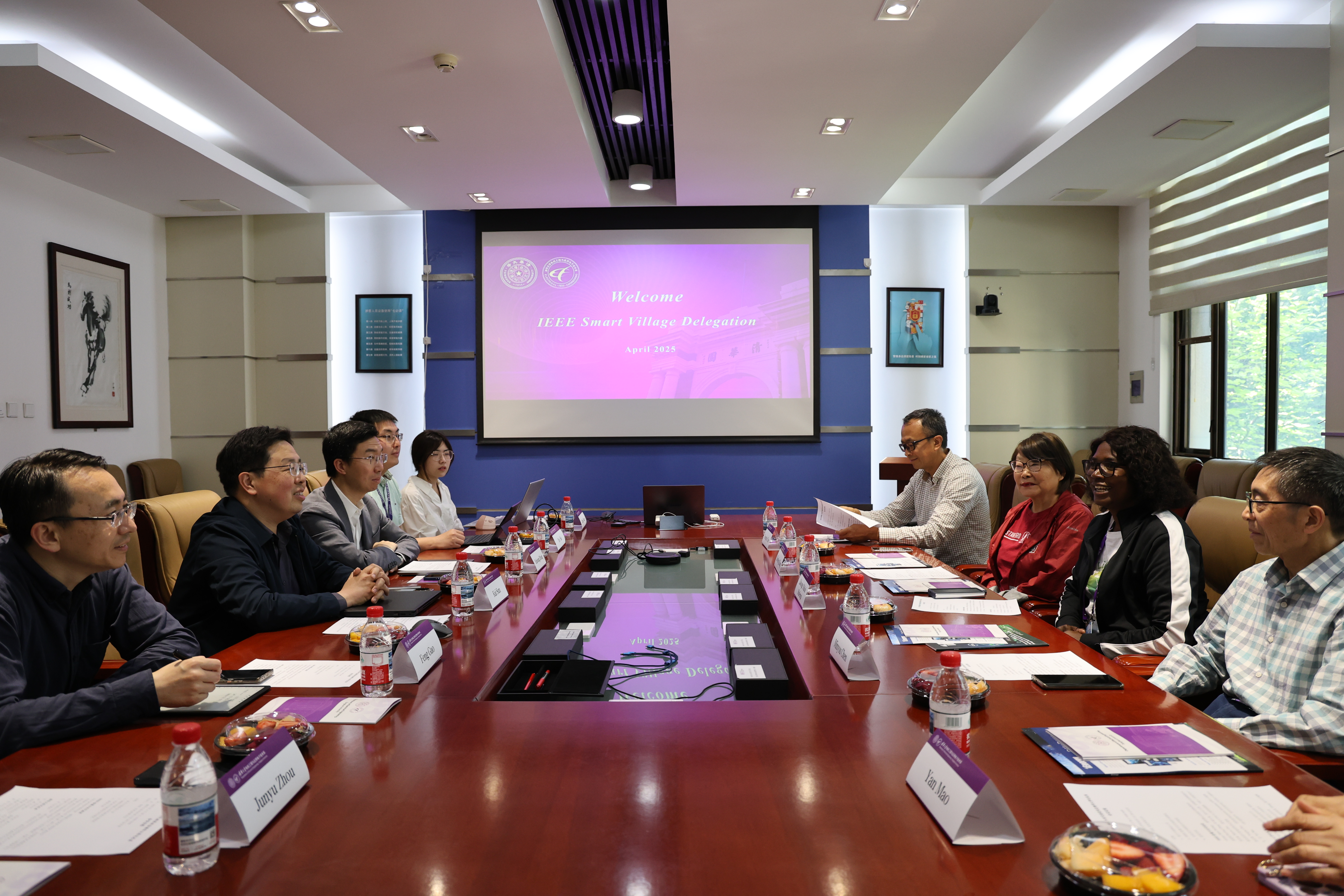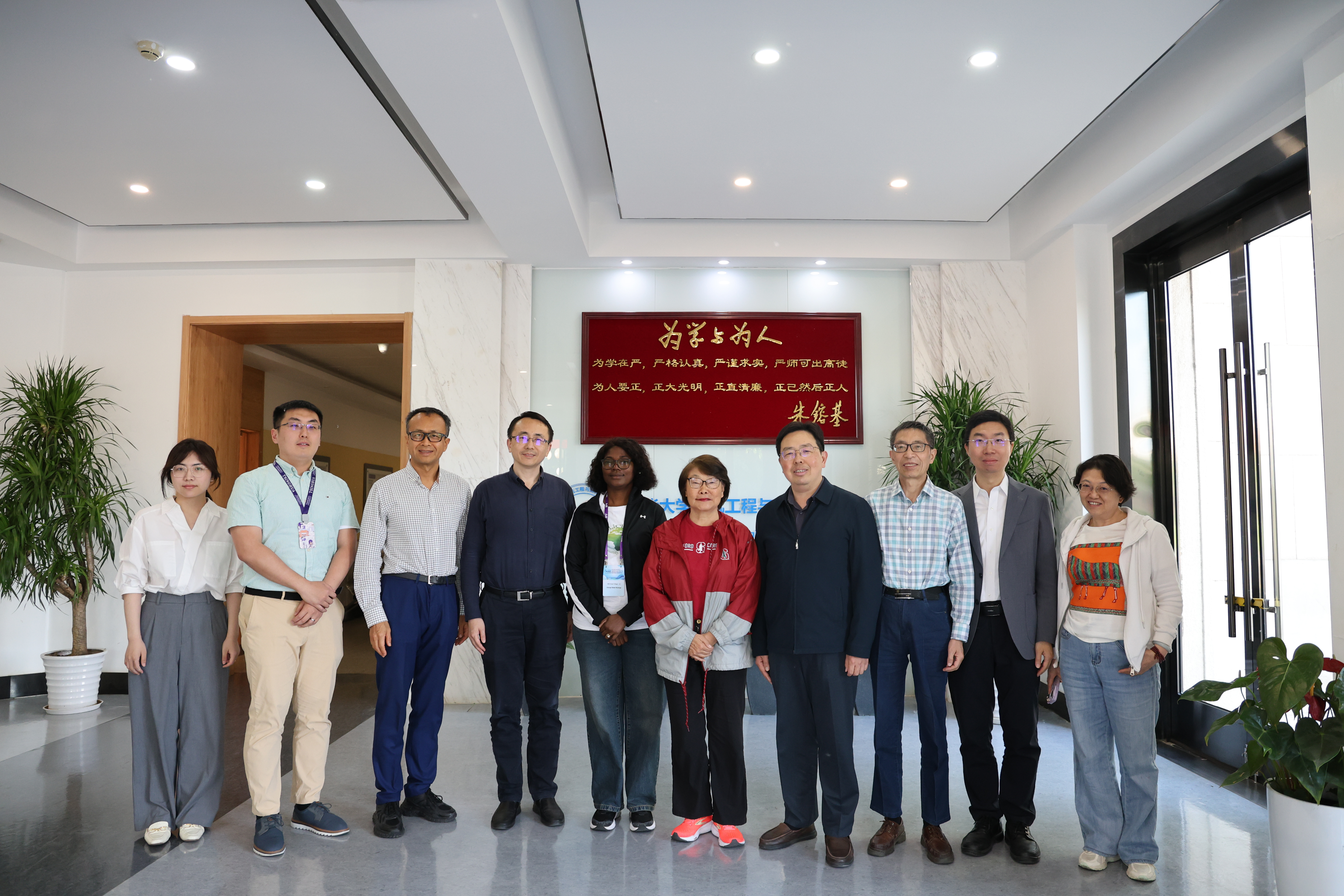On the afternoon of April 28, a delegation of five from the IEEE Smart Village, including Zhang Xiaofeng, Chair of the IEEE Smart Village China Committee, and Ms. Likonge Makai Mulenga, IEEE Smart Village National Representative for Zambia, visited the Department of Electrical Engineering and Applied Electronics (EEA) at Tsinghua University to further strengthen collaboration through dialogue and exchange. The guests were received by Sun Kai, Deputy Dean of EEA; Gao Feng, Vice President of the Institute for Energy Internet Innovation (Beijing); and Zhong Haiwang, Head of EEA Graduate Affairs Group.
At the discussion session, Sun Kai first extended a warm welcome to the IEEE Smart Village delegation and introduced the recent development of EEA, including organizational structure, talent cultivation, research innovation, team building, and international cooperation. Zhang Xiaofeng presented the IEEE Smart Village (ISV) project from four perspectives: its origin, current progress, future vision, and cooperation with China. He expressed the hope for strengthened collaboration in areas such as smart rural energy systems, education and training, and conference organization.
Likonge Makai Mulenga remarked that China possesses advanced technologies and extensive experience in smart rural development. She hoped to learn from China’s valuable practices in rural sustainable development, especially in rural energy systems, through this visit.
Gao Feng introduced the mission of the Beijing Institute in promoting academic research, technological innovation, and international cooperation in the field of energy internet, supporting rural energy transition and pilot projects, and actively participating in the formulation of international standards to drive global green and low-carbon energy development. Zhong Haiwang pointed out that Tsinghua University encourages students to participate in domestic and international social practice activities, particularly in regions such as Africa, to enhance their understanding of global development and challenges, while also advancing international collaboration in areas like renewable energy. Postdoctoral researcher Su Yu from EEA introduced a demonstration project on distributed smart energy systems in beautiful rural villages. The project integrates distributed resources and applies intelligent microgrid technologies to deliver efficient, low-cost energy solutions for remote rural areas. Wang Xiran, editor of iEnergy, presented the journal’s operations and invited the IEEE Smart Village team to publish expert opinions and updates on the latest developments via iEnergy, a global academic platform in the advanced energy field.

Discussion and Exchange Session
At the conclusion of the session, Sun Kai emphasized that EEA and the IEEE Smart Village initiative share many common goals, particularly in promoting rural revitalization and low-carbon sustainable development. He suggested that future collaboration could deepen in areas such as conference organization, journal publication, lectures and training, summer schools, and student practice programs both domestically and abroad.
Zhang Xiaofeng concluded by highlighting the IEEE Smart Village project’s focus on energy, education, and rural industrial revitalization, with numerous effective projects already launched globally. By offering online education and seed funding support, the project aims to promote rural sustainable development. He proposed that the two parties co-host conferences focused on smart village themes, align and coordinate their related projects, and facilitate joint student practices, with support provided by the IEEE Smart Village initiative.
This exchange clarified future directions and plans for cooperation, laying a solid foundation for deepening collaboration in the future.

Group Photo of Both Parties

















 News & Events
News & Events